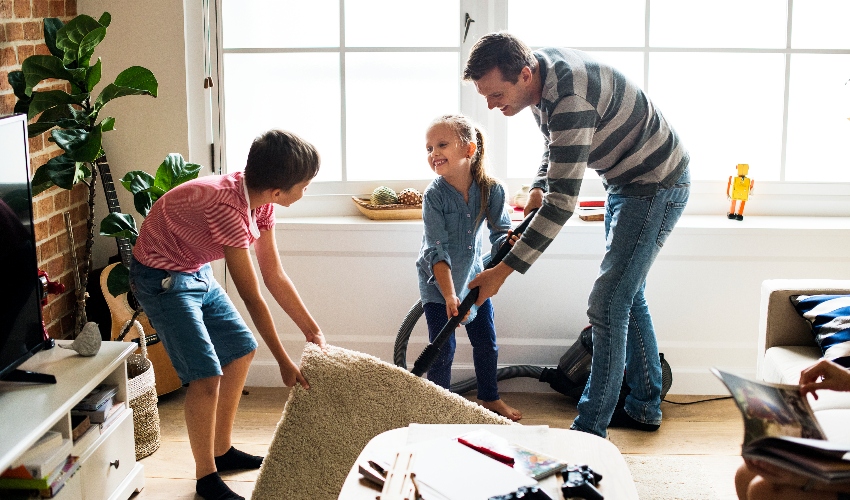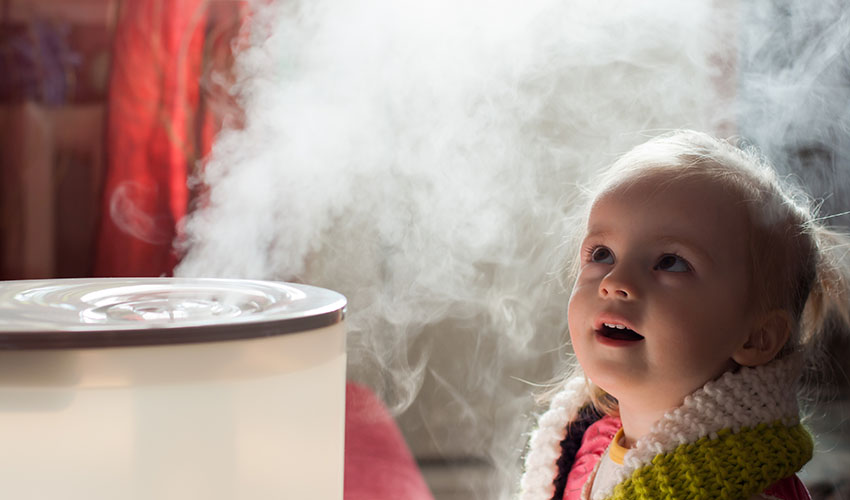Common Summer HVAC Mistakes to Avoid
Posted on by WestAIR Heating & Cooling

Summer weather is finally upon us, and we know that 2020 won’t be like every other year. Air conditioners play a vital role here in Minnesota and keeping them running properly will be even more important this time around. To help, we gathered a list of common summer HVAC mistakes to avoid as you keep your home feeling cool and cozy.
Neglecting Regular Maintenance
Regular HVAC maintenance helps prevent inconvenient breakdowns that leave you without cool, comfortable air and with an expensive repair to get it back. Avoid these mistakes to help keep your system running smoothly all season long.
- Not scheduling preventative maintenance. Don’t wait until you need an HVAC professional to call one. Have a regular preventative maintenance check early on to promote optimal performance throughout the summer.
- Running a system with dirty ducts. Dirt, dust, pet hair, and other harmful particles settle into your ductwork over time and get blown into the air you and your family breathe. Left long enough, they can also clog the system, forcing it to work harder and hiking up your utility bills as a result. Annual duct cleaning is vital to the health and efficiency of your HVAC system, as well as indoor air quality.
- Not keeping a clean filter. Just like ductwork, dirty or clogged air filters cause added stress on your HVAC system and decreased air quality. Plan to change your air filter (or clean if re-usable) monthly.
Having an Oversized System
Bigger isn’t always better when it comes to HVAC. Proper air conditioning will circulate cool air and remove humidity simultaneously and evenly – if the unit is too big, it will cool the home quickly without removing enough moisture from the air. As a result, you won’t feel comfortably cool and may turn the thermostat even lower, working the system harder and increasing energy use.
If your A/C isn’t cooling the home how you feel it should, consult your local HVAC experts about possibly upgrading to a right-sized system.
Closing Unused Air Vents
Some homeowners worry about cooling rooms that aren’t used on a daily basis. However, as mentioned above, properly sized systems are designed to evenly distribute cool air to the entire home. While it may seem logical to close unused vents to focus on cooling high-traffic areas, closing unused air vents decreases system efficiency and increases its workload.
Improper Thermostat Management
Altering the thermostat setting can be a touchy subject in the home, and doing so can impact the efficiency and health of your system. Remember to avoid these common mistakes.
- Don’t crank the thermostat. You may be tempted to turn the temp extra-low to cool the home quickly, but this method actually decreases efficiency and adds stress onto the system. Be patient. Set the temperature to a comfortable level and let it run at its optimal rate.
- Don’t pay to keep an empty house cool. No need to use extra energy to keep the house comfy if no one’s home. Turn the thermostat up when you’re gone for work or out of town, and turn it back down when you return.
- But don’t turn the system off. Turning the system completely off forces it to work harder to cool the home when it’s fired back up. Unless you’re leaving for an extended trip, keep the A/C running at a higher temperature.
Consider Installing a Programmable Thermostat
Programmable thermostats let you customize and set temperature and humidity settings for multiple days, eliminating the need to manually monitor them throughout the day. Contact us to learn more about optimizing your summertime cooling performance and schedule with a new smart thermostat.
Crowding/Obstructing the Outdoor Unit
Outdoor units need to easily draw in air to operate efficiently.
Clear any clutter and obstructions within two to three feet of the unit and be
sure to keep it clean of grass clippings, dirt, and other debris throughout the
summer.
Not Properly Sealing the Home
It’s a pretty simple concept: Keep cool air from escaping and heat from entering the home. Be mindful of these simple mistakes that impact your home’s cooling comfort and costs.
- Neglecting leaks and drafts. Inspect windows, doors, and exterior walls and seal or caulk any small cracks or gaps that could let cool air out and warm air in.
- Leaving windows unlocked and uncovered. Even shut windows can have small leaks, so lock them to ensure a tight seal. During the day, use curtains and shades to block direct rays of sunlight from heating your home.
Not Managing Indoor Humidity
Humidity plays a crucial role when it comes to home comfort and air quality. While HVAC systems pull moisture from the air, there are many things you can do to help reduce humidity in your home, such as taking cold(er) showers, using exhaust fans, and installing a dehumidifier to work in conjunction with your air conditioner.
Minnesota summers provide amazing opportunities to get outside and enjoy nature’s beauty, but we all know the importance of having a cool, comfortable home to relax in. Keep these common summer HVAC mistakes in mind to help avoid any issues with your system this cooling season.
As your residential HVAC experts, WestAIR is proud to reliably serve all your heating and cooling needs. Contact us today to schedule service and learn more.
This entry was posted in AC,Air Conditioning,Cooling,Duct Cleaning,Energy Savings,Indoor Air Quality,Repairs,Tips and tagged air conditioning, Air filters, Cooling Mistakes, Cooling Tips, Duct cleaning, Family Health, Family Safety, Home Cooling, Home Safety, Homeowner Education, Homeowner Tips, HVAC Education, HVAC Maintenance, HVAC Mistakes, HVAC Safety, HVAC tips, Indoor air quality, Preventative Maintenance, Summer Cooling, UV Light, WestAIR Heating & Cooling
Tips for Controlling Spring Allergies at Home
Posted on by WestAIR Heating & Cooling

Seeing warmer weather and longer days is bittersweet for allergy sufferers. Spring may be in the air, but so are pesky allergens. As we spend more time in our homes during the COVID-19 pandemic, indoor air quality becomes more important than ever. Use these helpful tips for controlling spring allergies at home to stay healthy and comfortable.
Change Shoes and Clothing After Being Outdoors
Controlling allergies begins with limiting exposure to allergens. Limit your time outdoors whenever possible. If you do venture out, don’t wear the same clothing and shoes around your home. Dirt, dust, pollen, and other irritants can cling to you and your wardrobe. Avoid tracking them around by changing as soon as you return home.
Dust, Vacuum, and Mop Regularly
Dust and allergens will settle on the surfaces of your home. Try to clean them at least weekly, and more often if you are leaving windows and doors open.
Have Your Ductwork Cleaned
Air ducts transport fresh air between your home and HVAC system, and over time will collect dust, pollen, and other airborne particles that travel through them. Having them cleaned annually is vital to indoor air quality. Schedule a professional duct cleaning service to help ensure you’re ready for the season.
Maintain a Clean Air Filter
The air filter blocks airborne irritants from getting into your system. However, it becomes dirty and less effective over time. If left long enough, the filter can also become clogged and make your system work harder, causing higher bills and faster wear and tear. Change (or clean it if re-usable) your air filter monthly to keep the system running properly.
Install an Air Cleaner
The name says it all. An air cleaner uses a filter to trap up to 97 percent of airborne bacteria, mold, dander, and other pollen-sized irritants. It can also eliminate viruses, kill germs, and neutralize odors and fumes.
Invest in Ultraviolet (UV) Light Air Purification
Breaking through an organism’s cell wall to destroy its DNA, UV light rays prevent that organism from reproducing and causing illness. UV technology has been around for over 100 years, and many homeowners today utilize it as a highly effective way to kill harmful bacteria, mold, and viruses in the home.
These systems conveniently work in conjunction with your current HVAC system. WestAIR is an authorized dealer of BreatheCLEAN UV air purification systems. Contact us to learn more or to schedule your UV light system installation.
Consider an Air Exchanger
Letting fresh air into the home can be beneficial, but it brings allergens along with it. An air exchanger solves this by exhausting stale indoor air and excess humidity while also delivering a continuous flow of filtered outdoor air inside. Installing a programmable thermostat will help you maintain indoor comfort without constantly managing temperature. And again, remember to keep your filter clean!
Controlling spring allergies at home comes down to limiting exposure to allergens. It sounds simple, but don’t be fooled into thinking the home is a completely irritant-free safe space. While we may be spending less time outdoors than usual this spring, use these tips to maintain indoor air quality and keep allergy symptoms at bay.
WestAIR’s HVAC experts are here for all your heating and cooling needs. As we continue helping our customers prepare their homes for the spring and summer during this time, our team is taking extra precautions to protect the health and safety of themselves and everyone they service. We prioritize your comfort and satisfaction in all that we do. Contact us today to schedule service and learn more.
This entry was posted in AC,Air Conditioning,Cooling,Duct Cleaning,Health Tips,Indoor Air Quality,Spring,Tips and tagged Air cleaner, air conditioning, Air exchanger, Air filters, Family Health, Family Safety, Heating, Home Heating, Home Safety, Homeowner Education, Homeowner Tips, HVAC Safety, HVAC tips, Importance of Indoor Air Quality, Indoor air quality, Spring Allergies, Spring Cleaning, Spring Heating and Cooling, UV Light
HVAC Tips for Spring Cleaning
Posted on by WestAIR Heating & Cooling

We can finally see that spring is on its way! With the weather warming up, it’s time to start preparing the home for the cooling season. Will yours be ready? To help out, we put together a list of HVAC tips for spring cleaning.
Change Air Filter (or Clean if Re-Usable)
A dirty or clogged air filter makes your system work harder, leading to higher bills and increased wear and tear. It also negatively affects indoor air quality. Change your air filter (or clean it if re-usable), and plan to do so monthly to keep the system working properly.
Clean Floor Registers and Return Air Vents
If dust gets into your HVAC system, it can negatively impact both energy efficiency and your home’s air quality. Use a vacuum to clean your floor registers and return air vents. You can get a deeper clean by removing the vent, brushing the individual grill spaces with a rag and butter knife, and then rinsing with warm soapy water.
Dust and Mop Around the Home
Though you should do these chores regularly throughout the year, dusting and mopping are especially important during spring. With windows and doors being left open more often, airborne particles like dust, dirt, and allergens accumulate on your surfaces and eventually make their way into your HVAC system.
Have Your Ductwork Cleaned
Air ducts supply your HVAC system with fresh air, but they can quickly become dirty from all the dust, pollen, and other harmful particles floating in the air. Keeping them clean helps prevent these harmful pollutants from accumulating in your ductwork and impacting the health of your HVAC system and air quality. Spring cleaning is the perfect time for a professional duct cleaning service, which you should do annually.
Clean Bathroom Exhaust Fan(s)
Clean and properly functioning, bathroom exhaust fans help with odor and moisture control, which helps prevent mold and mildew. Be sure the power is off, wash it with soapy water, and clean dirt and debris off the fan blades with a toothbrush.
Clean and Clear Debris from Outdoor A/C Unit
If your outdoor unit doesn’t get enough air or has dirt-covered coils, it could overheat. Turn off the power and clear away plants, weeds, leaves, branches, etc., and then rinse the condenser coils with a garden hose.
Check/Change Batteries in Smoke/Carbon Monoxide Detectors
Smoke and carbon monoxide detectors are a crucial line of defense against two common household dangers. Check the batteries and replace them if necessary. You should also dust or vacuum them to optimize performance.
Schedule Preventative Maintenance
Don’t get caught with a failing A/C or expensive repair bill down the road. Schedule a preventative maintenance service with your local HVAC contractor to ensure your system is running smoothly and ready for the cooling season.
During Minnesota winters, at times it feels like spring will never come. But when the days get longer and the temps rise, we know it’s time to start getting ready. Use these HVAC tips for spring cleaning to help make sure your home is ready for a safe, comfortable, and happy cooling season.
The HVAC professionals at WestAIR offer experience and expertise to cover all your heating and cooling needs. Contact us today to schedule service and learn more.
This entry was posted in AC,Air Conditioning,Cooling,Duct Cleaning,Health Tips,Indoor Air Quality,Spring,Tips and tagged air conditioning, Duct cleaning, Duct cleaning service, Family Health, Family Safety, Heating, Home Heating, Home Safety, Homeowner Education, Homeowner Tips, HVAC Safety, HVAC tips, Importance of Indoor Air Quality, Indoor air quality, Professional duct cleaning, Spring Cleaning, Spring Heating and Cooling
Importance of Indoor Air Quality
Posted on by WestAIR Heating & Cooling

When we think about pollutants, many of us jump to an image of factories pumping smoke and toxins into the air. But what about on a smaller, more personal scale? Most of us spend more time in our own home than anywhere else, yet fail to consider the potential harm we face there. Let’s look at the importance of indoor air quality for family health.
Why Indoor Air Quality Matters
According to the EPA, the concentrations of pollutants in indoors are often two to three times what they typically are outdoors. Additionally, the EPA says that on average, Americans spend about 90 percent of their time indoors, with people who are more susceptible to pollution’s adverse effects (including children, older adults, and those with cardiovascular or respiratory disease) spending even more.
Causes/Sources
When it comes to indoor pollutants, most people are aware of secondhand smoke, radon, and carbon monoxide. Other threats to indoor air quality include:
- Combustion sources like wood, coal, and gas heating and cooking appliances
- Cleaning supplies releasing different chemicals into the air
- Building materials like insulation and pressed wood
- HVAC systems, especially if improperly maintained
- Pet hair, dander, and other allergens
- Inadequate ventilation
- Dust mites and pests
- Mold and bacteria
Outdoor air pollutants can also make their way inside the home through open doors and windows, ventilation systems, and cracks and seams. Chimney smoke can reenter and pollute the air, and volatile chemicals can sometimes enter via the water supply when cooking or showering. By simply entering the home, people inadvertently bring the soil and dust particles attached to their clothing along with them, as well as any pollutants attached to those particles.
Effects
The effects of indoor air pollutants vary both by person and based on length of exposure. Some immediate, short-term effects include:
- Irritation of the eyes, nose, and throat
- Coughing and sneezing
- Headaches, dizziness, and fatigue
- Upper respiratory congestion
- Triggered or worsening asthma symptoms, including asthma attacks
Long-term and more severe health effects include:
- Respiratory disease, heart disease, and cancer
- Nausea and vomiting
- Fever and chills
- Myalgia (muscle pain)
- Nose bleeds
- Difficult or painful breathing
If you experience any of these symptoms, contact your healthcare professional or dial 9-1-1 in case of emergency. Consult your local HVAC professional about improving your home’s air quality.
Tips
Whether we’re escaping hot and humid summer days or the bitter cold of winter, Minnesota residents spend plenty of time indoors year-round. Maintaining clean indoor air is crucial, and here are a few basic tips to get you started:
- Let in fresh air: Open windows and doors when possible and consider purchasing an air exchanger to help replace stale indoor air with during the winter.
- Clean regularly: Vacuum carpets and rugs one to two times each week and dust hard surfaces weekly.
- Wash bedding weekly and consider using dust mite-proof covers on pillows, mattresses, and box springs.
- Have your ductwork cleaned and change your filter (or clean if re-usable) monthly.
- Invest in an air cleaner to efficiently trap and remove airborne pollutants.
- Declutter your living space to avoid trapping and holding dust.
WestAIR Heating & Cooling understands the importance of indoor air quality, and we want to help keep your family safe and healthy. We offer professional duct cleaning as well as sale and service of air exchangers, air cleaners, whole house humidifiers, and replacement filters.Contact us to learn more and schedule service today.
This entry was posted in Duct Cleaning,Health Tips,Indoor Air Quality,Tips and tagged Effects of Indoor Air Pollutants, Effects of Indoor Air Quality, Effects of Poor Indoor Air Quality, Family Health, Family Safety, Heating, Heating System, Home Heating, Home Safety, Homeowner Education, Homeowner Tips, HVAC Safety, Importance of Indoor Air Quality, Indoor air, Indoor Air Pollutants, Indoor air quality, Indoor air quality solutions, Indoor Air Quality Tips, Winter
Subscribe to Our Blog
With RSS feeds, you don't have to visit our site everyday to keep up to date. Simply subscribe to our blog via RSS or Email and our posts will come to you!
Search Blog Posts
Categories
Archives
- April 2024 (1)
- February 2024 (1)
- January 2024 (1)
- February 2023 (1)
- January 2023 (1)
- December 2022 (1)
- November 2022 (1)
- October 2022 (1)
- September 2022 (1)
- August 2022 (1)
- July 2022 (1)
- June 2022 (1)
- May 2022 (1)
- April 2022 (1)
- March 2022 (1)
- February 2022 (2)
- December 2021 (1)
- November 2021 (1)
- October 2021 (1)
- September 2021 (1)
- August 2021 (1)
- July 2021 (1)
- June 2021 (1)
- May 2021 (1)
- April 2021 (1)
- March 2021 (2)
- January 2021 (1)
- December 2020 (1)
- November 2020 (1)
- October 2020 (1)
- September 2020 (1)
- August 2020 (1)
- July 2020 (1)
- June 2020 (1)
- May 2020 (1)
- April 2020 (1)
- March 2020 (1)
- February 2020 (2)
- November 2019 (1)
- August 2019 (2)
- June 2019 (1)
- May 2019 (1)
- April 2019 (1)
- March 2019 (1)
- February 2019 (1)
- January 2019 (1)
- December 2018 (1)
- November 2018 (1)
- October 2018 (1)
- September 2018 (1)
- August 2018 (2)
- July 2018 (1)
- May 2018 (1)
- April 2018 (1)
- March 2018 (1)
- February 2018 (1)
- January 2018 (1)
- December 2017 (3)
- November 2017 (2)
- October 2017 (2)
- September 2017 (2)
- August 2017 (1)
- July 2017 (2)
- June 2017 (3)
- May 2017 (2)
- January 2017 (4)
- November 2016 (1)
- September 2016 (3)
- July 2016 (2)
- June 2016 (2)
- May 2016 (4)
- April 2016 (1)
- March 2016 (2)
- February 2016 (2)
- January 2016 (1)
- August 2015 (1)
- July 2015 (1)
- June 2015 (3)
- May 2015 (1)
- July 2014 (2)
- June 2014 (1)
- April 2014 (1)
- March 2014 (1)
- February 2014 (2)
- October 2013 (1)
- May 2013 (1)
- March 2013 (1)
- February 2013 (1)
- August 2012 (1)
- July 2012 (2)
- June 2012 (2)
- May 2012 (2)
- March 2012 (1)
- February 2012 (1)
- December 2011 (1)
- November 2011 (1)
- October 2011 (1)
- September 2011 (1)
- August 2011 (1)
- June 2011 (1)
- May 2011 (1)
 Subscribe
Subscribe Subscribe
Subscribe